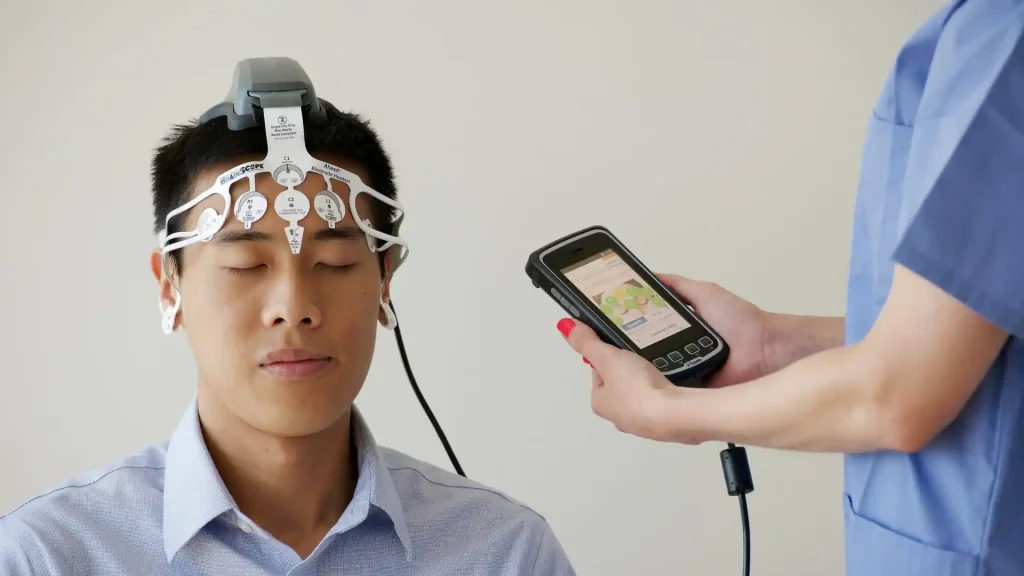Posted on Sunday, June 8th, 2025 at 9:00 am
 Living with a neurological disorder can be overwhelming. These conditions can interfere with your ability to think clearly, move normally, and perform daily tasks. If your symptoms prevent you from working, you may be eligible for long-term disability (LTD) benefits, but insurance companies don’t always make that process easy. For those with neurological disorders, LTD benefits can be a lifeline—but proving eligibility often requires extensive documentation.
Living with a neurological disorder can be overwhelming. These conditions can interfere with your ability to think clearly, move normally, and perform daily tasks. If your symptoms prevent you from working, you may be eligible for long-term disability (LTD) benefits, but insurance companies don’t always make that process easy. For those with neurological disorders, LTD benefits can be a lifeline—but proving eligibility often requires extensive documentation.
Proving disability based on a neurological condition requires detailed evidence, careful documentation, persistence, and often, help from a qualified attorney.
What Neurological Conditions May Qualify for LTD Benefits?
Many neurological disorders qualify for long-term disability benefits if the symptoms severely limit your ability to work. Some of the most common conditions include:
- Multiple Sclerosis (MS)
- Parkinson’s Disease
- Epilepsy
- Stroke
- Functional Neurological Disorder (FND)
- Traumatic Brain Injury (TBI)
- Alzheimer’s or other dementias
- Peripheral neuropathy
- ALS (Amyotrophic Lateral Sclerosis)
Generally, if your condition keeps you from working full-time, it may qualify for LTD.
Progressive vs. Episodic Conditions
Some neurological diseases, like ALS or MS, are progressive, which means that over time, symptoms worsen. Others, such as epilepsy or migraines, may occur in unpredictable episodes. Both types may be eligible for LTD benefits, depending on how they affect your work life. Insurers will review your diagnosis and how your symptoms impact your ability to function consistently on the job. For those living with neurological disorders & long-term disability, it’s essential to show how the condition interferes with daily tasks and work responsibilities to qualify for the support you need.
Please read more about Backpain LTD benefits here: Back Pain and Long Term Disability Benefits
How Neurological Disorders Affect Your Ability to Work
Neurological disorders can affect the brain, spinal cord, and nerves. They can cause a wide range of symptoms, including:
- Memory problems
- Difficulty concentrating
- Speech difficulties
- Loss of coordination or muscle control
- Seizures
- Chronic fatigue or weakness
- Tremors or involuntary movements
These symptoms can make it hard—or impossible—to do your job. For example, someone with Parkinson’s may struggle to use a computer, and a person recovering from a stroke might have trouble speaking clearly. A successful LTD claim for stroke survivors must explain how specific symptoms affect work duties.
Please read more about the LTD claim here: What You Need To Know About Your Disability Claim
Your occupation is usually key to whether your LTD claim is approved. A neurological disorder that prevents you from working as a surgeon might not prevent you from doing office work, and vice versa. This is especially important during the “own occupation” period of most LTD policies, which typically lasts 24 months. After that, many policies shift to an “any occupation” standard.
Medical Evidence Needed to Support Your LTD Claim
Objective medical evidence is important for any successful LTD claim. For example, you may use:
- Neurological exams
- Imaging studies (like MRIs or CT scans)
- EEGs (for epilepsy)
- Neuropsychological testing (for cognitive decline)
- EMGs or nerve conduction studies
These tests provide the evidence you need to prove your condition is legitimate and disabling. Specialist opinions also carry weight. For example, seeing a neurologist regularly can help demonstrate your condition’s severity and progression.
Consistent Treatment History Is Important
Insurance companies want to see that you’re actively treating your condition. Even if there’s no cure, regular doctor visits, therapy, and medications show you’re trying to manage your health. Be sure your medical records include:
- Your diagnosis and how it was made
- Specific symptoms and how they affect your daily life
- Details on any worsening over time
Without this information, the insurers may argue your symptoms aren’t severe enough to prevent you from working.
Documenting Cognitive Dysfunction
Documenting cognitive limitations is especially important for LTD for multiple sclerosis, Parkinson’s, or brain injuries. These issues, like memory loss or difficulty concentrating, are common in many neurological disorders. However, they’re harder to prove than physical symptoms. Neuropsychological testing is usually key for a cognitive dysfunction LTD claim. These kinds of tests assess your mental processing speed, problem-solving skills, and attention span.
Functional Assessments and RFC Forms
 A Residual Functional Capacity (RFC) form helps translate medical issues into real-world limitations. Your treating neurologist should complete this form. It describes how long you can sit, stand, walk, concentrate, and carry out tasks. RFCs are especially important when symptoms vary daily, as with functional neurological disorders or epilepsy, and LTD benefits.
A Residual Functional Capacity (RFC) form helps translate medical issues into real-world limitations. Your treating neurologist should complete this form. It describes how long you can sit, stand, walk, concentrate, and carry out tasks. RFCs are especially important when symptoms vary daily, as with functional neurological disorders or epilepsy, and LTD benefits.
Don’t assume your doctor will complete this form without being asked. Talk to them about the importance of connecting your symptoms to specific work limitations.
You must show how your illness prevents you from doing your job. A diagnosis alone isn’t enough.
Describe how symptoms interfere with daily job duties. For example:
- “I can no longer type due to hand tremors.”
- “I forget key tasks and meetings due to memory issues.”
- “I experience seizures several times a week, making it unsafe to work.”
This approach helps tie your long-term disability neurological condition to functional limitations.
Learn How Capitan Law, PLLC Can Help With Your LTD Claim
Even strong claims get denied. Many insurers deny benefits by saying there’s insufficient “objective evidence,” even for well-documented neurological conditions in Philadelphia. If your claim is denied, don’t panic. You have the right to appeal, and Capitan Law, PLLC can help. Our team is here to help you understand your rights and take the first step toward securing the necessary benefits. Contact us today, online or by calling (267) 419-7888, to discuss how we can help you pursue the benefits you need.
Related Post
Can You Work While Receiving Long-Term Disability Benefits?
What Are Residual Disability Benefits?
Can You Work While Receiving Long-Term Disability Benefits?